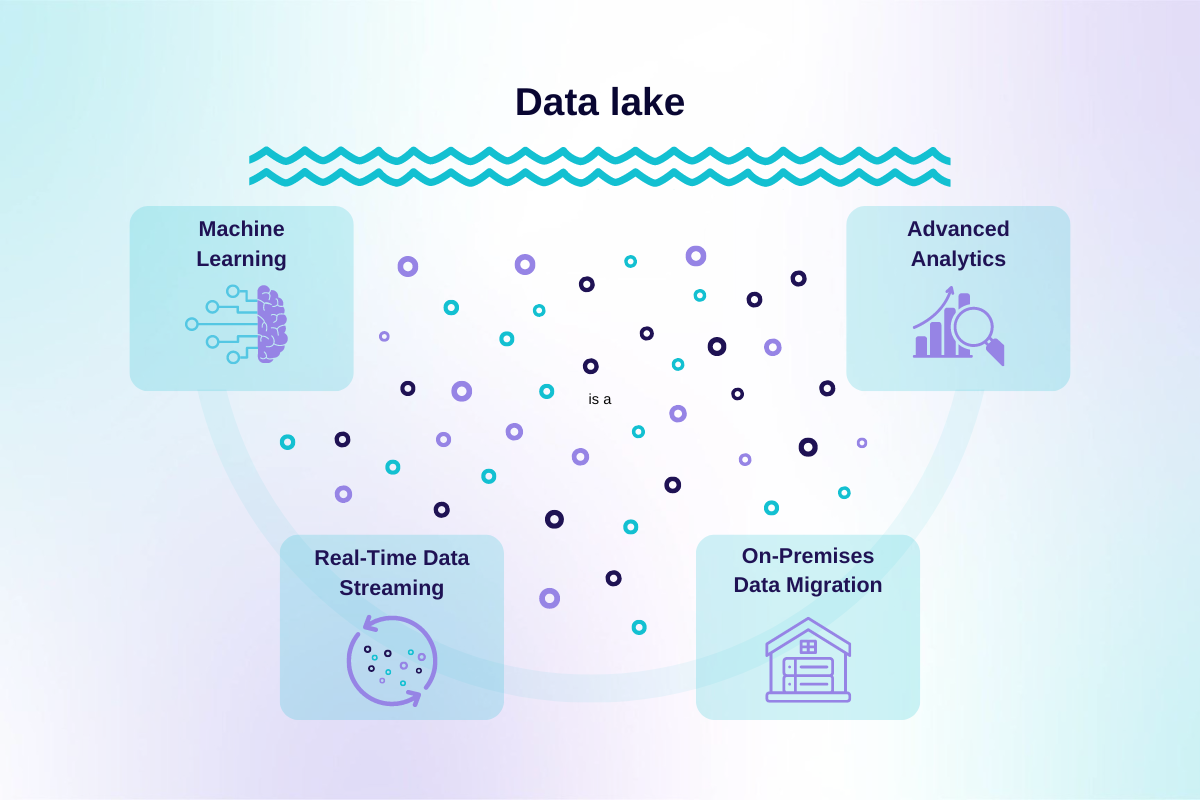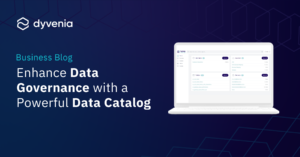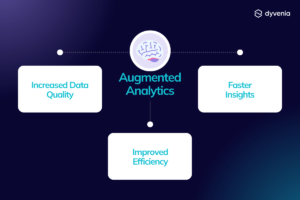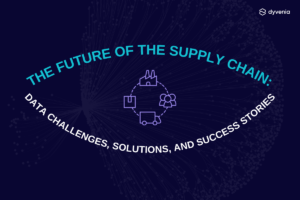Organizations chiefly make decisions based on their data, and to do so they must have a full view of their business data. To excel, they need to generate the most business value they can from their data. Data Lakes offer a way to do this along with other benefits. They are becoming an increasingly popular way for organizations to store all of their data in one repository, cheaply and securely, while allowing universal access to all employees. Such advantages make it easier to attract and retain customers, boost productivity, maintain devices, perform analytics, and act upon business opportunities faster.
Data Lakes – What Are They?
Data lakes are repositories designed to store both structured and unstructured data, in any form. This means the data can be raw and unprocessed. The data is ready-to-use without any refinement, enrichment, or storing required. And because the captured data set has an undefined structure, you don’t need to carefully plan before storing it. This makes providing access simple since there is no need to comb through bad data or potential security threats. This allows, users to easily gain insights into SQL programming queries, big data analytics, full-text search, real-time analytics, and machine learning.
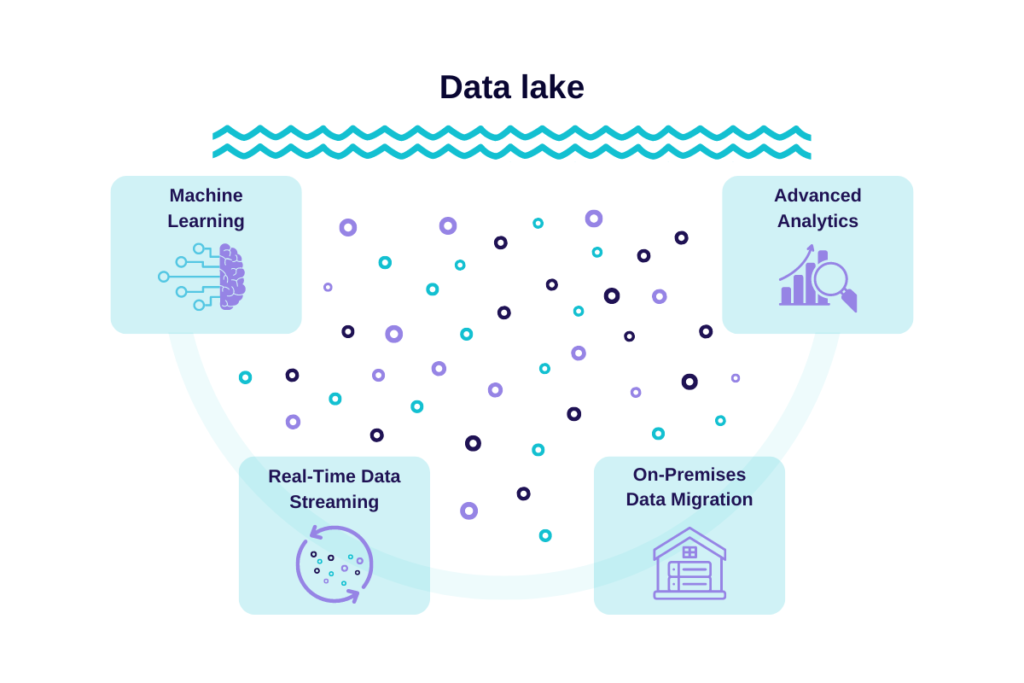
Data lakes can support various data capabilities in an organization.
Organizations Face a Variety of Data Challenges
Before data lakes, organizations could perform queries and analyses over large amounts of historical data, but they couldn’t accommodate large unstructured data such as tweets, images, voice, and streaming data. And, the practice of storing data in individual databases creates data silos that make it difficult to access the information.
Consequently, employees must go through lengthy and tedious permission processes in order to access useful data. Traditionally this has meant that data management is:
- Costly and risky
- Inflexible and rigid
- Complex and redundant
- Slow and underperforming
- Outdated
How Data Lakes Can Provide a Solution
Unlike their predecessors, data lakes are cheap, flexible, scalable, easy to use, and provide superior data quality. By eliminating silos and allowing access to historical data analysis, every department is able to better understand customers.
Organizations also gain the ability to store vast amounts of data, even petabytes. The ability to store data from any source, at any size, speed, and structure makes possible more robust and diverse queries, data science use cases, and new information discoveries.
Data lakes rapidly ingest large amounts of raw data in native format. This means that users can access data whenever they need it without seeking permission from anyone, and data scientists can more easily apply analytics for superior insights and business intelligence. You can also run code and send it through extract, transform, and load pipelines later when you know what queries you want to run (without inadvertently removing critical information).
Not only do data lakes democratize data and allow for quick decision-making, but they also provide invaluable technological solutions, such as enhanced schema adaptability, advanced analytics, and the ability to support more languages than SQL.
Data lakes centralize disparate data and data sources then deploy machine learning models and analytics tools to get predictions on market gaps and opportunities. They can also provide actionable insights from data sources such as social media content to rapidly understand consumer patterns to improve sales. Moreover, R&D can take advantage of the data assets available to power advanced analytics tasks, for better decision-making. Data lakes are especially useful in:
- Supporting IoT
- Finding opportunities for growth and business advantages
- Understanding and providing valuable insights
- Boosting research and development
Why Your Organization Should Have One
Putting all your data into a data lake allows you to perform many functions, including business intelligence, big data analytics, data archiving, machine learning, and data science.
We strongly believe that organizations need to build a data lake if they want to use their data faster, cheaper, and more efficiently than ever before.
We’ve learned that data lakes make it easy to store different types of data since it doesn’t need to be processed on their way in. However, to preserve the quality of data and ensure data governance, it’s important to adhere to good practices or you could end up with a data swamp that makes it difficult to access data and extract value from it.
Author
-

The founder and CEO of dyvenia. Because of his background in financial analytics, he strives to deliver fast, efficient and impactful solutions. Due to his programming experience, he believes that robust software engineering practices need to be introduced to the world of data. And because he wants to see that gap between the people, technology and data bridged someday, he loves to bring complex technical concepts to people so that they understand the big picture behind becoming data-fueled.
View all posts

